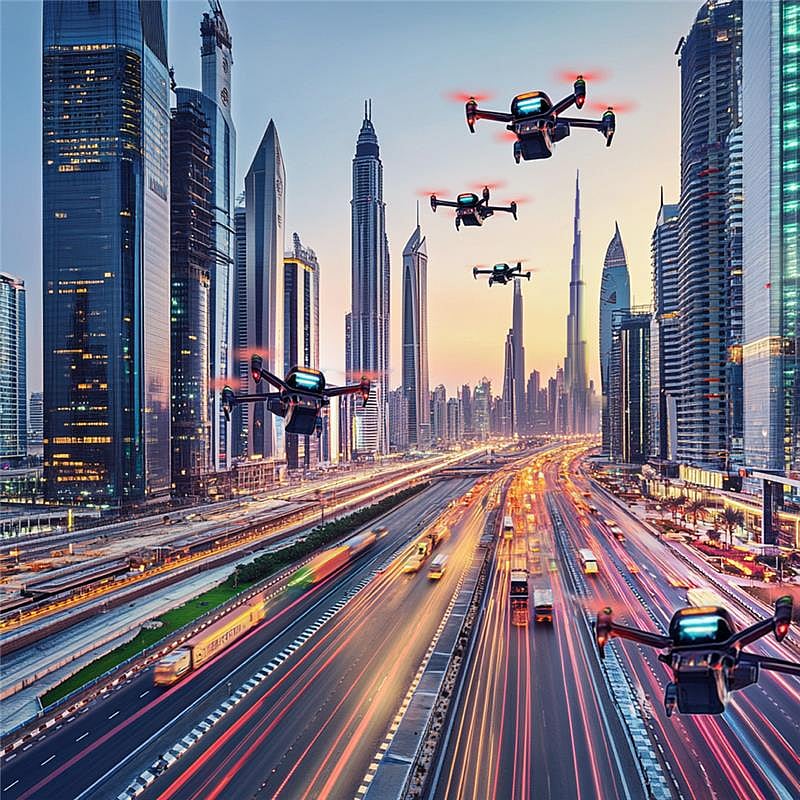S.F. No. 750/6, G.D. Naidu Nagar, Near KMCH, Coimbatore - 641 014.
Follow Us:

S.F. No. 750/6, G.D. Naidu Nagar, Near KMCH, Coimbatore - 641 014.
Follow Us:

The UAE has started mapping its air corridor and is also working on the regulatory framework for the deployment of piloted and autonomous flying taxis and cargo drones, the General Civil Aviation Authority (GCAA) announced on Thursday.
The aerial corridors and regulations are set to be defined within the next 20 months, added GCAA.
“Air corridor mapping for piloted and autonomous air taxis and drones is a crucial milestone that will enable the seamless implementation of Advanced Air Mobility into the UAE’s infrastructure,” said GCAA director-general Saif Mohammed Al Suwaidi, adding: “This initiative ensures the safe and efficient adoption of air mobility, delivering transformative solutions to urban transport and paving the way for a smarter, more connected future.”
“The aerial routes will connect key international airports and iconic places in the UAE, extending further to ensure seamless integration of piloted and autonomous air taxis and cargo drones across the nation’s urban landscapes,” noted GCAA.
Dubai is set to become the first city in the world to launch the aerial taxi project, with the service scheduled to commence in the first quarter of 2026. On January 9, Dubai announced the country’s first commercial vertiport that will be named Dubai International Vertiport (DXV).
Early this week, it was also announced that vertiports will be constructed at three key locations in Abu Dhabi, including Al Bateen, Yas Island, and Khalifa Port. Vertiports are designated areas for takeoff, landing, and servicing of flying taxis – which are scheduled to start operations in 2026.
On Thursday, at the World Governments Summit, GCAA and Advanced Technology Research Council (ATRC) entities Technology Innovation Institute (TII) and Aspire signed a strategic partnership to share technical expertise in airspace management, including mapping the UAE’s air corridor.
The said entities vowed to “ensure the safe integration of piloted and autonomous air taxis and cargo drones into urban environments.”
“The new air corridors will offer innovative solutions for passenger and cargo transport, relieving pressure on traditional road networks and improving connectivity,” they noted.
“We’re developing advanced AI-powered control, vision and communication algorithms for autonomous systems that enable real-time decision-making for air taxis and drones,” said Prof. Enrico Natalizio, Chief Researcher of the Autonomous Robotics Research Center at TII.
“We are not only enhancing urban connectivity but also driving sustainable and accessible mobility solutions that will benefit future generations,” added Dr Najwa Aaraj, CEO of TII.